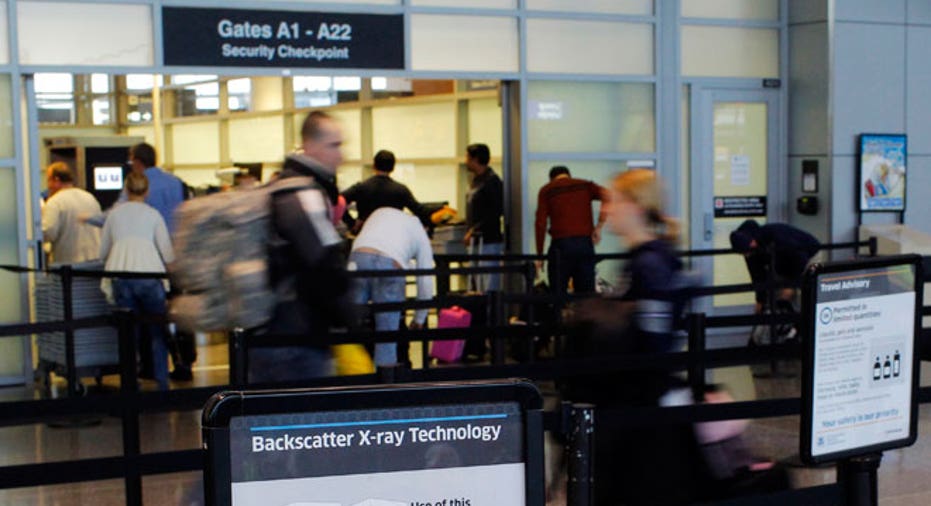Travel Insurance Policies for 5 Trip Types

Between capsized cruise ships, ongoing political tensions and the annual hurricane season, summer travel can seem like risky business. But don't resign yourself to a staycation just yet. Travel insurance policies can protect against annoyances and accidents, both common and extreme.
Many people who might benefit from travel insurance don't buy it. One in 8 U.S. adults has experienced a travel disruption or considered changing travel plans due to world events since the summer of 2010, according to a recent survey conducted for the US Travel Insurance Association. Yet only 29% of those hampered travelers had travel insurance, the survey revealed.
Still, consumers are becoming more educated about what can go wrong on trips, says Dwain Wall, senior vice president and general manager at CruiseOne, a company that specializes in cruise bookings. About 60% of the people who book through CruiseOne's affiliated travel agents buy travel insurance when they purchase a cruise, up from 40% two years ago. "As people understand the risks of traveling, then they are much more willing to get it," he says.
Travel insurance policies can vary greatly; be sure to read your policy and ask questions to make sure you know what's included, says Linda Kundell, spokeswoman for the US Travel Insurance Association, or UStiA.
Here are insurance tips for problems that could arise with different flavors of summer travel. Before you buy a policy, check to see if you're already covered through your credit card or through your homeowners or renters insurance policy.
If you're going away to visit family: Comprehensive travel insurance policies can cover many of the common problems of summer travel. These include lost baggage, trip cancellations or interruptions, travel delays from weather or illness, and medical care on the road.
While the costs for travel insurance can vary, for most packages you'll pay between 4% and 8% of the total trip cost, according to UStiA. Rates are based on the length and cost of the trip (more expensive trips cost more to insure), the age of the purchaser (older travelers pay more) and the destination.
If you're going to a hurricane-prone resort area: While most comprehensive travel insurance policies do cover weather problems and delays, the weather event has to become more than a mere threat. In other words, if a hurricane looks like it's going to hit the Bahamas and it veers course and doesn't affect your destination, you would not receive reimbursement if you canceled, says Kundell.
The solution? A policy that allows you to cancel for any reason. These policies usually are more expensive -- costing up to 50% more -- but they do give you more latitude over your travel plans and cover up to 75% of your costs. Often you can buy these plans only during the first two weeks after making your initial trip deposit.
Here's another reason to buy your insurance early: You can usually get a waiver of the pre-existing medical condition clause that's a part of most travel policies. If you delay and then become subject to this clause, your insurer will be able to look into your medical history and refuse to cover any claims related to a medical issue you had before the trip, going back a certain length of time. (The period varies by policy.)
If you're going to a foreign country: Besides helping with rebooking and refunds during unplanned weather delays or natural acts such as volcanic eruptions, travel insurance can protect you from the transportation delays and cancellations you might experience from national labor strikes. Some policies cover evacuation due to political unrest, and travel insurance also can help if you lose your passport.
Many people don't realize that most U.S. health insurance plans do not cover you outside the country. Most comprehensive travel insurance plans include medical treatment.
Those who are visiting more remote locations might want to go the extra step of getting medical evacuation insurance from a company such as Medjet Assist. The coverage will not only get you to the best nearby medical facilities -- it will pay for your return back to your home hospital of choice.
If you're going on a cruise: Don't miss the boat: If you've booked plane tickets to the port through the cruise line or a travel agent and have what's known as a "cruise fare," the airline is required to get you to the next port of call if your flight arrives too late, says Wall. If you bought your tickets independently, then a travel insurance policy that covers flight delays could keep you out of a jam.
Assistance programs that some travel insurers provide can come in handy if your ship suffers a mechanical failure or if extreme weather forces you to be dropped off in a different location than expected. While the ships usually offer some compensation for these problems, people who have travel insurance can usually call a hotline to get rebooked -- and reimbursed -- sooner.
If you're participating in extreme sports: A little-known fact about travel insurance is that activities perceived as dangerous or risky, such as sky diving, cave exploring or rock climbing, aren't covered in most policies. If you're an adrenaline junkie, you'll want to make sure you buy a rider that covers possible injuries you could sustain getting your fix.
"You can call us directly to say, 'Here's the trip I'm taking, (and) here are the things that I'm concerned about,'" says Carol Mueller, a vice president with travel insurer Travel Guard. If you're into extreme activities, having the right kind of travel insurance also can help protect expensive gear, she says.
Read more: Travel Insurance Policies | Bankrate.com
http://www.bankrate.com/finance/travel/travel-insurance-policies.aspx#ixzz1z6veTyK9



















